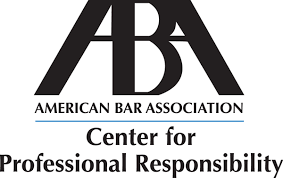Lawyer Charged with Raping Client
While sexual relations are rarely appropriate, even when permitted by the Rules of Professional Responsibility, raping one’s client is an atrocity so against the integrity of the legal profession, it is unlikely a lawyer charged with raping his client will prevail with the State Bar.
Attorney, Vincent A. Cirillo, Jr., was charged with sexual assault and rape of one of his clients in August of 2015. Cirillo is a criminal defense attorney in Pennsylvania, and in early August of this year he had drinks with his client at her house. His client claims Cirillo put something in her drink causing her to pass out and become unconscious, during which time Cirillo had sex with and raped her. Cirillo denies having sexual intercourse with his client, despite the audio recording of a conversation between the two when he admits sexual intercourse. He does, however, admit having sexual contact.
… a sexual relationship between a lawyer and client cannot begin during the lawyer’s representation of the client
The Rules of Professional Responsibility Rule 1.8(j) states that “[a] lawyer shall not have sexual relations with a client unless a consensual sexual relationship existed between them when the client-lawyer relationship commenced.” This means that a sexual relationship between a lawyer and client cannot begin during the lawyer’s representation of the client. If the sexual relationship was going on prior to the client-lawyer relationship, such a relationship is permissible – though not necessarily advisable. When the relationship occurs during the representation and begins after the representation has begun, issues arise, and disciplinary action is likely.
Rule 1.8 was initiated to prevent conflicts of interest from arising during the course of a lawyer’s representation of a client. Sexual relationships typically complicate professional situations, and when a sexual relationship with a client occurs as a result of and begins during a lawyer’s representation of a client, conflicts of interest arise not only with his representation of the case, but others’ perceptions of the case and the lawyer’s intentions.
Rule 8.4(b) states that it is professional misconduct if a lawyer commits a criminal act reflecting adversely on their honest, trustworthiness or fitness as a lawyer in other respects.
Not only is it against the Rules of Professional Responsibility for attorneys, for an attorney to have a sexual relationship with a client that began during his or her representation of that client, but also it is against the Rules to engage in conduct that harms the integrity of the legal profession, such as raping a client. The Rules of Professional Responsibility governing misconduct is Rule 8.4. Rule 8.4(b) states that it is professional misconduct if a lawyer commits a criminal act reflecting adversely on their honesty, trustworthiness or fitness as a lawyer in other respects. Rule 8.4(d) also states it is professional misconduct for a lawyer to “engage in conduct that is prejudicial to the administration of justice.”
The act of betraying a client’s trust and taking advantage of a client in a personal setting with alcohol certainly would fit within this rule of a criminal act reflecting adversely on the lawyer’s trustworthiness or even to their fitness as a lawyer, in serving as an advocate for his client’s when he does not respect his clients enough to not take advantage of them.
A lawyer who takes advantage of his client in a personal setting is not exempt from discipline by the State Bar because he did not take advantage of the client while in his office or during a meeting about her case.
The actions of lawyers in personal settings outside of their professional capacities are not exempt from disciplinary consequences. A lawyer who takes advantage of his client in a personal setting is not exempt from discipline by the State Bar because he did not take advantage of the client while in his office or during a meeting about her case. Instead, an attorney is always to be cautious of his or her conduct and how that conduct affects the integrity of the legal professional.
All considerations of the Rules of Professional Responsibility aside, it is illegal for anyone to rape another individual, or sexually assault someone. In this case, it is likely Cirillo will face criminal charges.
[Cirillo] is likely to be disbarred for his actions based on the atrocious nature of his actions, and the fact that he took advantage of the client-lawyer relationship, the relationship that is held so dear to the practice of law…
Aside from criminal charges, it is also equally likely, and very probable, that Cirillo will face penalties by the State Bar of Pennsylvania. He is likely to be disbarred for his actions based on the atrocious nature of his actions, and the fact that he took advantage of the client-lawyer relationship, the relationship that is held so dear to the practice of law, and the relationship that is so important and sacred to the integrity of the profession.
In cases where attorneys have begun sexual relations with clients during representation, those attorneys often are suspended for certain periods of time depending on the level of seriousness of the actions. However, raping a client goes further than just having sex with a client. The act of raping a client is likely to have a more serious effect, ultimately leading to criminal charges and the loss of his legal license permanently. If his own client’s can’t trust him, it’s not likely the State Bar will trust him to continue practicing law in an appropriate and legal manner regardless of the outcome of the criminal case.




